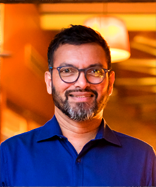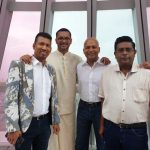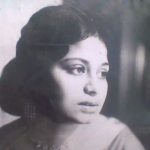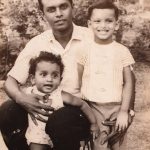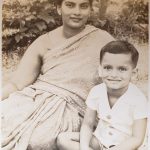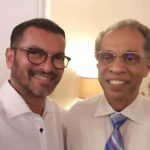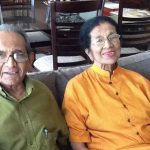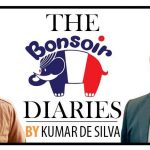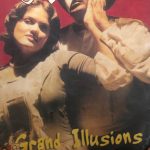“Arjie helped me finally make my peace with Brandon”
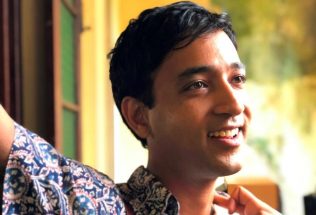
Sri Lankan actor Brandon Ingram, in a chat with Kumar de Silva, discusses his screen avatar Arjie in ‘Funny Boy’, his first ever movie, and goes back to his foray into acting at Wesley College Colombo, Sri Lanka, his alma Mater, where in 1999 he won the coveted Best Actor Award at the All-Island Inter-school Shakespeare Drama Competition.
An adaptation of Shyam Selvadurai’s 1994 novel, ‘Funny Boy’ is a Canadian drama film, directed by celebrated film maker Deepa Mehta and has been selected to represent Canada at the Academy Awards in the International Feature category.
An edited version of this chat with Brandon Ingram appears in the Dec 2020 / Jan 2021 issue of the Pulse Magazine. At the end of this Q&A are also his interview with “Aperitifs with Kumar” on www.pulse.lk
How much of Arjie is Brandon and how much of Brandon is Arjie ?
Well, for starters, Arjie is 17 and Brandon is 35. But in a strange many way it seemed as though he was a much older soul than I. Arjie, I think, is more grounded than a 17-year-old Brandon.
He understands the world differently than I did. He is in search of intimacy, I was in search of pleasure, and perhaps these two things are simply two stages of the same emotional end, but at 35 I’m still understanding what intimacy means and how to be strong about the softness of love.
Arjie figures these things out at a very young age – and I think my co-star Arush Nand, who plays the younger Arjie, does a fantastic job in bringing the nuance of that learning alive.
In all honesty I was jealous of Arjie, of how early he came upon all that he uncovered about human emotion and what a powerful force love can be when you allow it into your life.
There were times on set when I would silently say to myself “I wish I had thought like this or done that”, or ask myself “did I want all the wrong things when I was that young?” But these are just some of the many ramblings that go on in actor’s head when he or she is understanding what it means to be the character they are playing.
I don’t regret a single thing in my life that has shaped the becoming of who I am today, I love Brandon at 35 – but Arjie helped me finally make my peace with Brandon at 17 and understand him as I never had before.
The time frame in the book/film is 1983. Nearly four decades later, homosexuality is a widely discussed topic. Rate the levels of acceptance and rejection today.
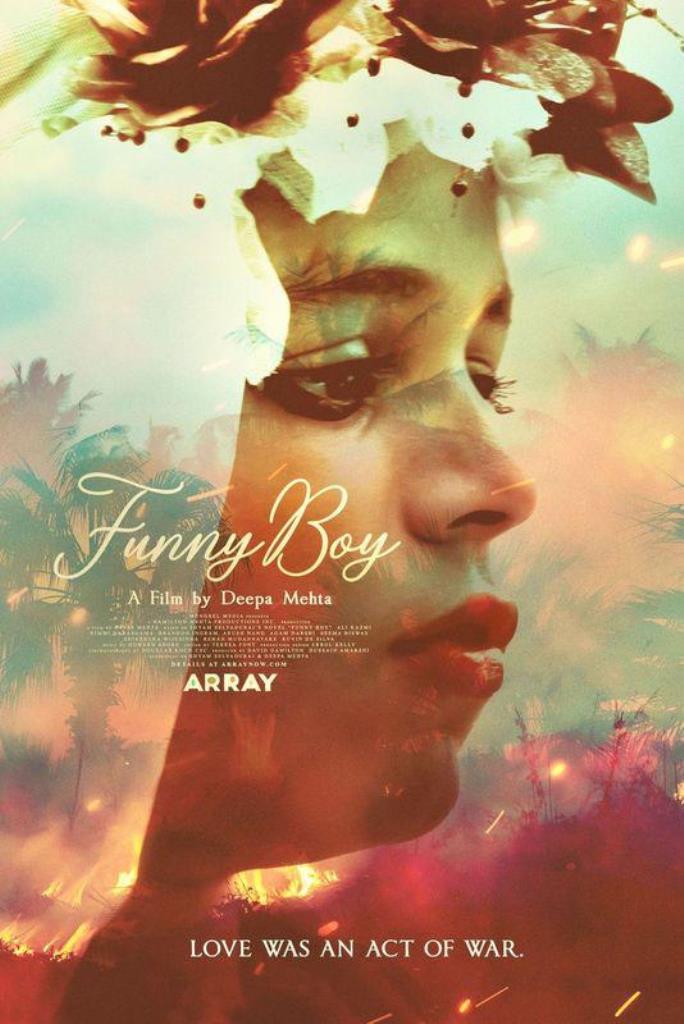
I believe – and this might be an unpopular opinion – that acceptance and rejection at any point of our lives depends largely on how much we accept or reject ourselves.
There are those that might argue that I come from an “open-minded” family, and that therefore the discussion and acceptance of homosexuality must have been easy. It wasn’t.
Of course, once the conversation got started the words and feelings poured out like a dam that had just burst open. But getting to the point of having the conversation was hard, painful, like your insides want to evaporate right out of your body. I learned in moments like those that there was only one truth I had to come to terms with – whether or not I was ok with who I was.
Could I love myself for being who and what I was born to be? Could I embrace every part of my being even if it didn’t fit into the expectations of family and friends?
The world is always going to be the best it has ever been and the worst it has ever been at any given moment in time. How do you choose to look at it? And the answer to that question begins with how you choose to see yourself.
Have you experienced similar rejection in your personal / professional life ?
I think I’ve carried the knowledge of who I was inside of me since I was a child, since way before I knew to tell the difference between the way we are taught to feel and how we actually feel. So to know a truth about yourself on the deepest level and yet see that the world around you expected something else meant living in a deep and unrighteous fear.
It meant that I spent most of my childhood, my teenage years and even a better part of 20s quite simply rejecting myself. But you never see it as something you’re doing to yourself, you only see your own fears and insecurities reflected back at you through the world around you.
So yes, I may have believed that there were many moments of so called ‘rejection’, but it has taken me a lifetime to see that all those moments were mostly just me rejecting myself. When I look back on my life now, back to those moments that I believed were harsh and unkind, I see that people were actually being nice, attempting understand what they didn’t, making an effort to see outside of themselves. But all I could see was rejection.
It’s important to add that rejection is an important part of growth. From directors who turn you down for roles to employers who claim you aren’t qualified enough, and lovers who leave you stranded – they all teach you the levels of acceptance you are constantly in search of and how far deep within yourself you need to reach to access them.
Having seen the movie on screen, do you think you’ve done justice to the role? How much of a self-critical person are you when it comes to you work ?
I do have a tendency to be extremely critical of myself. When you really apply yourself to your craft, your passion, your profession, there comes a time when people start telling you you’re good at what you do. For me, this was the first moment I became cocky. Then suddenly you’re not paying as much attention as you should or giving enough of your time toward making something the best it can be – because you’ve been told you’re good, so you expect that you will keep being good, just like that. Then you mess up, as I have done so many times. I think that’s when the perfectionist in me was born.
From that moment on it didn’t matter what anyone else thought, even if they said I was the best, it didn’t matter if I didn’t think so. This way of measuring my work became another extreme that often lead to self-loathing – both as an actor and a writer. Somewhere along the way I found the middle ground. That sweet spot in between getting something right and not taking myself too seriously, and I think that’s when the real magic in terms of the experiences I was having was truly born.
And yet, 13 years of theatre later, there came my first film: Funny Boy. The first time I watched it I was back to being that ultra-critical version of myself. Looking for all the flaws in how I delivered a line, telling myself that I looked terrible, cringing at the way I walked and talked and existed on the screen. The second time I watched it I was with others, so I was immediately looking out for their reactions. Did they think I was good? Did they say all the terrible thing about me that I saw? Had I ruined the movie by being in it?
The third time I saw the film was when I hosted one of the five underground screenings that happened in Colombo. It was the first time I was able to remove myself from what was playing out in front of me and watch the story as a whole. And suddenly, I had vanished. There was no Brandon on the screen. There was Arjie and he was only one part of a much bigger story, and it worked. And I think that’s as much as I can say about it. I’ve given my director what she asked of me, everything she asked of me, and it’s there for everyone to see. She believed there was justice done to it, the rest is for the viewers to say.
Share some unforgettable incidents on set / on location.
There was never a dull moment on the set. Always something hilarious going on, always something new we were experimenting with – be it a line or a mood or the way we wanted to enter a scene – Deepa is just a fascinating woman to watch when she works.
I was seated next to her on the Galle Road outside the Bambalapitiya Supermarket one Sunday morning. I’d just come in from makeup and wardrobe and was waiting for the rest of the actors to get on set for the shot.
Deepa and I had said our good mornings and soon after she was lost in her own world, I could tell. She was looking around, drawing elements of the space before her in her mind’s eye and wondering how they would fit in to what we were about to shoot.
At the entrance to the supermarket there stood a cat, licking its paw. It was not an exceptional cat; in fact, given the location, quite an ignorable cat, I would say. But Deepa’s hands made a frame of the cat and I heard her say out loud: “this is the cat.”
She said it a few more times and I remember having a little giggle to myself because I thought it such a cute moment. What was she doing? Skip ahead to a year later, at the private screening in my apartment where, as I said before, I truly WATCHED the film for the first time.
We arrive at the scene that I’ve told you about and just as it ends the camera moves in on a cat reaching for a piece of meat, in what is a beautiful way to end that scene. At that moment I whisper to myself: “this is the cat”, only then realizing that Deepa had been mapping out how she wanted that scene to end right then and there in that moment. I must’ve told this story a hundred times, and still I am fascinated by it.
Tell me about your childhood. Single parent / working mother Corrine.. Did you feel ‘neglected’ as a child ?

Oh, dear lord, ALL THE TIME. I think to say otherwise from that child’s perspective would be a lie. When you’re that young you don’t understand that your mother is doing everything in her power to give you the life that she believes you deserve.
You don’t realize that every moment she doesn’t spend with you is a moment that has gone into investing in your future and making sure that life will be better for you than it was for her. You don’t see any of that as a child. As a child you only see that your mother is not around a whole lot of the time, and that starts to raise a lot of questions, form a lot of issues that lead to possessiveness, attention seeking behavior, and general disruption.
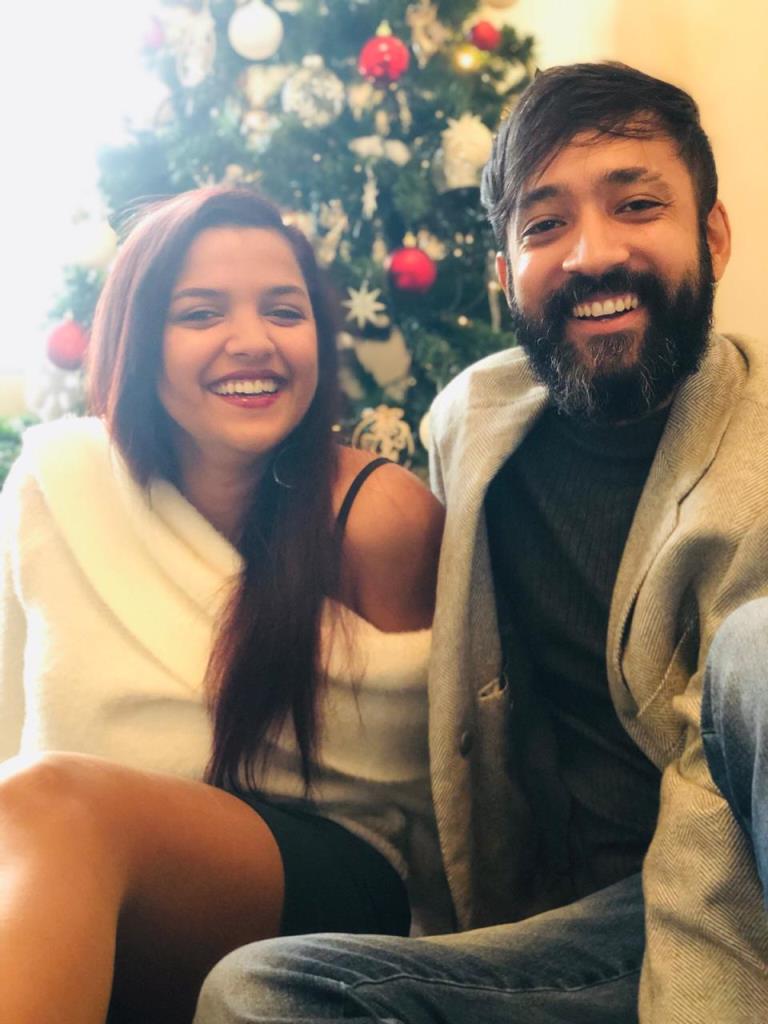
As a teenager these issues became magnified even more. The headstrong self-righteousness that we think we are entitled to at that juvenile time of our lives is harsh enough – imagine my poor mother having to deal with that as a single parent with a child who was struggling to deal with his own sexual identity. It’s a formula for disaster. There was a lot of screaming, a lot of door-banging, a lot of crying.
But there was also a lot of laughing, and music, and soft conversation, and family trips, and card-playing, and reading, and dancing. My mother is a happy woman, and she has always been the heart of our family, trying in whatever way she can to share that happiness with everyone who walks into her life. She didn’t always get it back the way she should have.
And as I look upon my childhood, I see that key amongst the people who constantly broke her heart was me – who at times could have been an ungrateful child. But she loved me then as she loves me now, with all of her being. She never missed a Parent’s Day at school. She never missed a concert or a performance. She never missed a present on an important day. She never let me want for anything. She taught me independence and grace.
She saw me through my education and encouraged every decision I made for myself with “as long as it will make you happy.” She has guided me on everything from fiscal responsibility to walking away from a man who didn’t see my worth. And most importantly, she’s given me careful instruction on the importance of following my bliss. She is my greatest champion and my best friend.
Has the lack of a father figure impacted you the child / teenager / man?
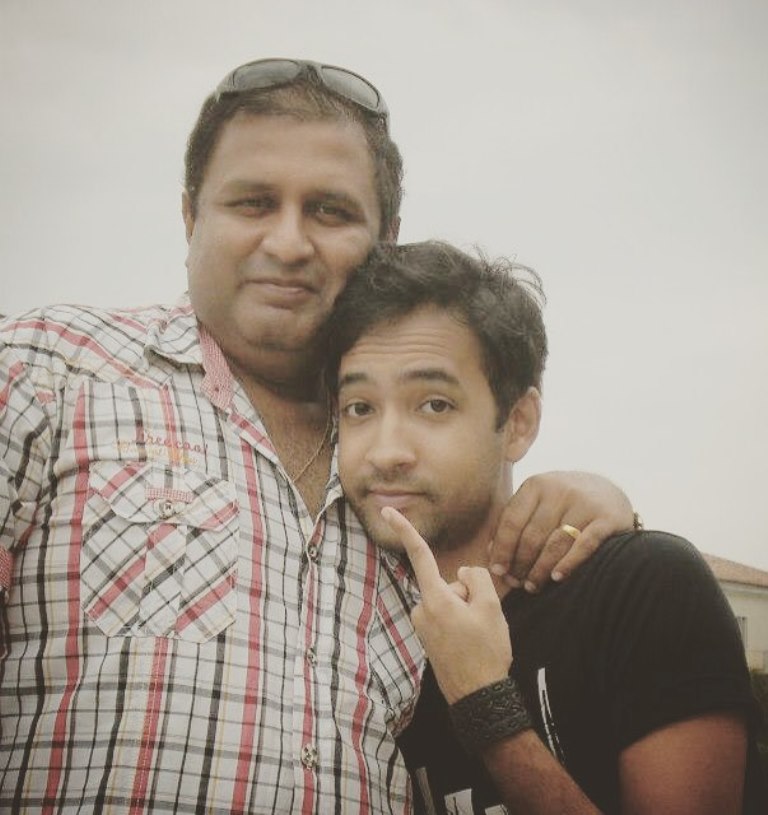
Let’s break this question down a bit and be a little more specific. Whilst I may have lacked the presence of a father, I did not lack the presence of a father figure. Having made that distinction, I’m going to address those two elements separately. So, did the absence of my father have an impact on me? Of course it did. I would learn, very much later in life, that I had severe abandonment issues as a result of it.
These issues impacted my personal relationships and the way I chose to behave in them. It also became reflective of the type of people whose affection I would seek after and what lengths I was willing to go to in order to have them returned.
It has taken years of self-reflection, meditation, and the ever-expansive nature of alignment with a higher power to truly see how deep these wounds run and how much healing I have needed.
I must say, here and now, that I don’t hold any of this against my father anymore. I did once, but that time has passed. He’s a good man at heart. You learn as you grow older to stop seeing your parents as these marvels on a pedestal whose one wrong move can shatter you for life, and you start seeing them as people – real life, flesh and blood, skin and bone, feeling, thinking, breathing people like yourself.
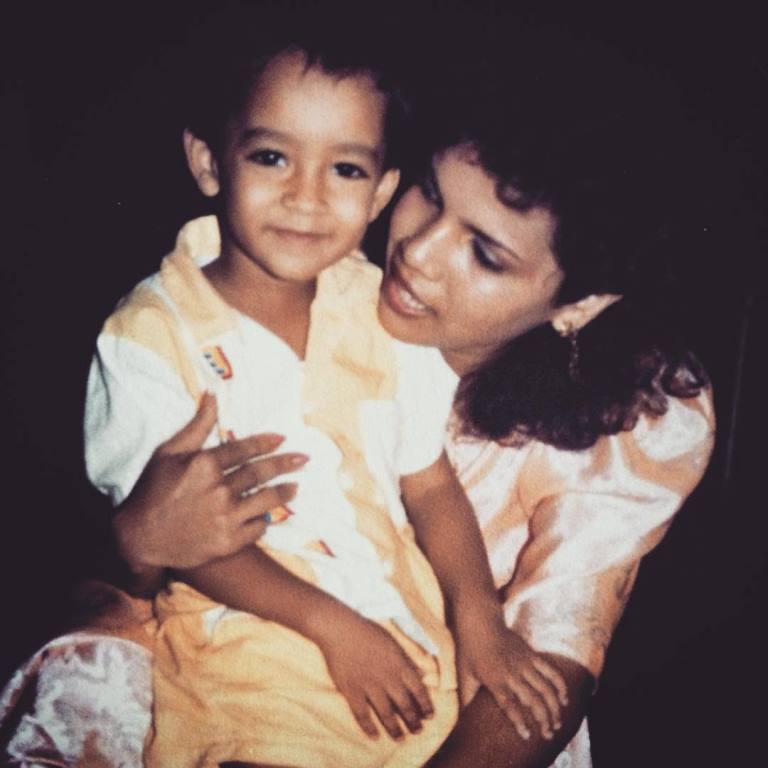
And suddenly you get it. And suddenly it’s ok. Because everything that happened until the moment I realized I had those abandonment issues, I could easily blame on my dad. But everything after that moment of realization was on me, and today I take full responsibility for all my actions.
In a way I guess his absence taught me a lesson in manhood that I may never have learned if he had stayed. And for that too, I am deeply thankful. On to the father figures in my life.
There have been a few that have taken the time to teach me the perspective of a responsible man. Key amongst them is my Uncle Michael. Never a day in my life have he and my Aunt Sharon (my mom’s sister) treated me as anything less than their own.
From him I learned integrity, devotion, and the fact that unconditional love is something that you have to work at, long after you think you’ve figured it out. Because of him – because of all of them really – me and my cousin Michelle were raised as brother and sister, in both our homes, and so we will remain, in this unbreakable bond, for as long as we draw breath (and possibly even after).
You spent much time with your amazing Grandmother. What role did your Grandmother play in your life ? What do you owe her ?
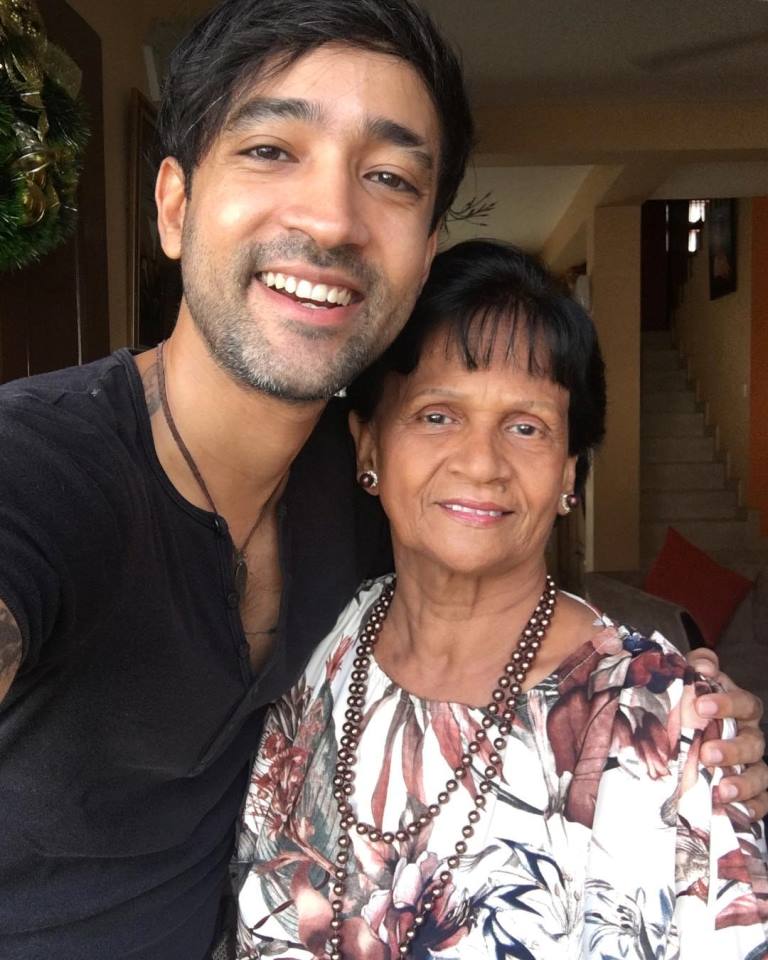
Nana. Now she’s a force to reckon with. Anyone who is dear enough to me, in my life, has heard and knows full well of Nana.
She is the character that pops up in my stories, the absolute firebrand that blows my mind on a regular basis, and my biggest fan.
Nana raised me while mom was away working. I think when they said ‘an iron fist in a leather glove’ they were talking about her.
With her I began my spiritual journey, and though we are at very different points of it in our lives now, she was the foundation of my ongoing search of the great divine. To say that I owe her something would be to make the precious relationship between us seem transactional. It is not.
We are much more than that to one another. Her lessons have been sharp at times, gentle at others, and worth learning in every instance. And how strange the way this life works… as a child there was a stubbornness to me that could only be broken by Nana.
As an adult, I see that same stubbornness in her sometimes, and you best believe that at those times, she will only listen to the reason that comes from me.
School days at Wesley College Colombo …. any memories ?
Wesley College was and I think still is one of the greatest institutions of education in this country. But school was barely a fun place for me. Children can be the worst type of people and I endured a lot of bullying, name-calling, and abuse, which I suppose is the result of a culture steeped in toxic masculinity. We have a name for it now, but we didn’t back then.
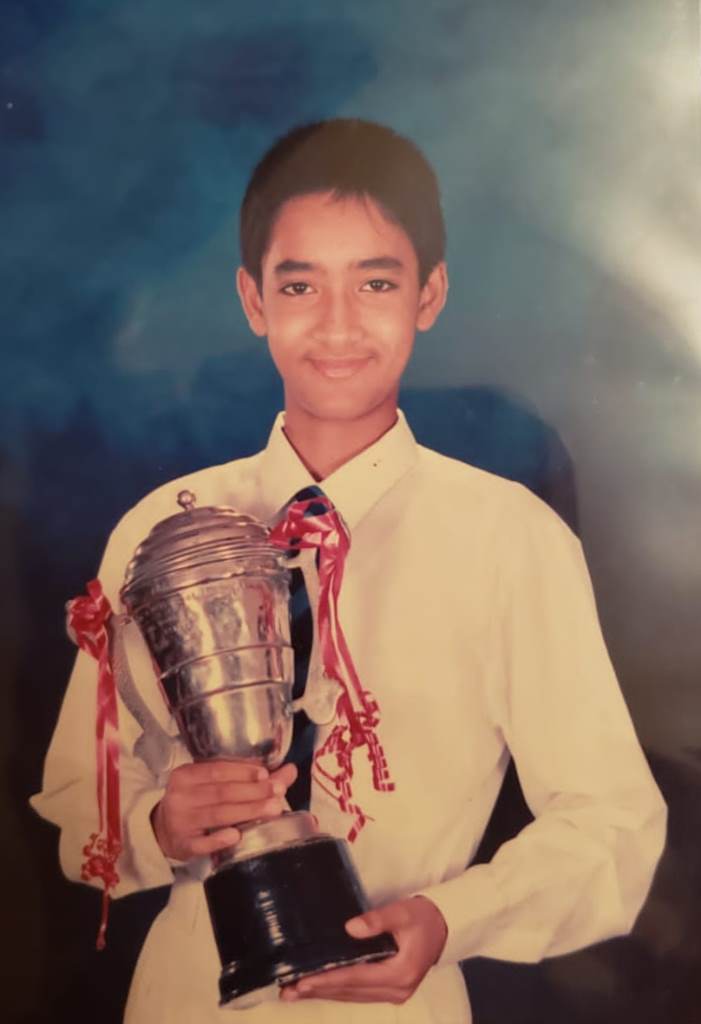
I remember having friends, and I remember them being unfriendly when they thought a certain type of person was watching. I remember experiencing things that were so awful that I couldn’t even bring myself to talk about them at home. But then again, that’s all part of growing up.
It wasn’t always bad either. It’s the place where a lot of my firsts happened. The first time I sang to an audience that was not my family, the first time I got on stage to act, the first time I [probably] fell in love. But my best memory from school happened in 1999. A year before then, in 98, Wesley had decided to participate in the All Island Interschool Shakespeare Drama Competition after years of not taking part. We performed a scene from Hamlet – I played Ophelia. We were not great.
The following year we decided to go for it again. We’d chosen a scene from The Merchant of Venice. It was the courtroom scene and I played Portia, with her “quality of mercy” speech. It was a Monday morning and the assembly had just ended. Our drama teacher, Mrs. Nirmali de Silva, had got us permission to rehearse through the first period.
The great hall had cleared out and the cast were on stage when a member of staff (I won’t say who) came up to us and said (not verbatim): “why are you’ll wasting your time with this drama nonsense? It’s not like you’ll are going to win anything anyway. Go to class and learn something of value.”
I don’t know what came over me in that moment, but I stepped forward and said to this person: “One of us will win the Best Actor’s award this year. I promise you.” I had forgotten the conversation until a month later when I heard that I had won the award. And that is really where it all started.
Your books – The Fairy Dance (2007) and Living Their Lie (2009). Fact ? Fiction ? Faction ? Would you wish these to hit the screen, even in the vernacular in Sri Lanka ?

There’s always a little fact in fiction and a little fiction in fact. The Fairy Dance was inspired by the ugly issue of Child Sex Tourism in Sri Lanka, back in the day. Living Their Lie was an attempt at exploring what I used to like to call “The Colombo Bubble”.
These books meant something to me when they came out, they were a part of who I was, and they stood for things I believed in back then.
I am not that person anymore, and I think as a writer, I sometimes cringe when I read passages or excerpts from the books that people post and tag me in.
But that should only say something about the evolution of my craft and not about the stories I told – they are still important today; they still mean something to my readers and because of that they will always have a special place in my heart.
But like certain types of food, or certain kinds of people, or certain ways of life, you learn to outgrow your work too, and grow into something new. So, no. I wouldn’t want them to become anything other than what they are to me now – two very special moments from my past.
You’ve had a successful career in the advertising industry working for J. Walter Thompson, Grant McCann Erickson, Lowe LDB and Response Marketing. What would be your ‘highs’ be, in your career in advertising ?

The first time I won the Young Lotus competition and was selected to represent Sri Lanka at the same competition at AdFest in Thailand was definitely a huge moment. I’d won a couple of awards before then but never something like that. The Southeast Asian talent representing each country was as fantastic then as it is now. Formidable ideas people who honestly made me feel like a fraud for even being there.
Many years and many awards after that there came my time at Response Marketing, which I count to this day as being one of the most joyful times in my career. I worked with a team that was switched on to some magical level, led by my work partner in crime and dear friend, Alyna who is an absolute dynamite of talent, with a power of thought for growing brands that I totally envy.
Together, we became the 5th most Effie awarded agency in the world, according to the Global Effie Index (the Effies are international awards that recognize the effectivity of communication as opposed to creativity). And the best part is that we didn’t even know, for an entire year, until we were at the award show the next year and heard the chief guest say it in his speech.
The final high, before I left the industry, was both writing and starring in the famous Duck & Goose commercial for Munchee Bourbon. The film turned out to be a massive success for the brand and went on to become a meme that was used heavily during the Presidential Elections of 2015.
Five years of a break later I returned to advertising in 2019, as Creative Director of Wunderman Thompson, Sri Lanka (formerly J. Walter Thompson, where I began my career). I couldn’t refuse the timely call of the brilliant Alyna Haji Omar, who is now the company’s visionary CEO.
This might be your first screen experience after several stage appearances. As an actor, stage/screen, which to you is more challenging and why ?

I don’t know that one is more challenging than the other. They are both full of discovery. In both you are either becoming something outside of yourself that you have only observed in passing, or something inside of yourself that you have seldom paid attention to. They are both a journey that must be set on with a willingness to lose yourself along the way.
However, I will make this observation as an actor. In theatre you get into character and you allow that character to carry you through from start to end along a chronology of emotions.
In film you could start at the end and end at the beginning depending on your shoot schedule, and you’re almost never picking your character up where you left them the day before.
Sometimes you’re shooting a moment of deep passion with another character in one scene and in the next scene you’re shooting a moment in which neither of you has met the other as yet. That was definitely new for me.
Tell us about the Tarot Card Reader in you?
The Tarot and I have a very old relationship. I first started reading when I was thirteen. I had seen the cards on a TV show, and I remember being so drawn to them. My mother brought me my first deck from one of her visits to the US. I didn’t understand it at the time, but I’ve always been fascinated by the mystical nature of things.

I believe there are forces in the universe that are beyond the human capacity to comprehend, and I have always been in search of answers to questions like: Where do we come from? What happens after we die? How many times have we lived this life? The great mysteries of the grand design, if you will. These questions have led me down some mind-altering paths and have helped me grasp the fundamentals of energy.
The Tarot is like a camera that takes a snapshot of your energy in any given moment of time. It focuses on what your being is focused on and then develops an image that I have the ability to translate for you. It’s not a fortunetelling device, nor is it some simplistic magic trick for parties. It brings together the energy of the querant and the intuition of the reader and is quite simply a catalyst for facing the truths that we would just as soon run away from.
When I read, I am able to connect with the energy of the moment that has been placed before me. Words and questions form in my mind as I keep speaking and the people I read for always seem to understand exactly what they mean. The joy of seeing the clouds of uncertainty leave a querant’s eyes as they become confident in themselves and their decisions is more rewarding than I can explain.
You must have a lot of new “friends” after ‘Funny Boy’ propelled you into the limelight. You know how fake Colombo society can be too.
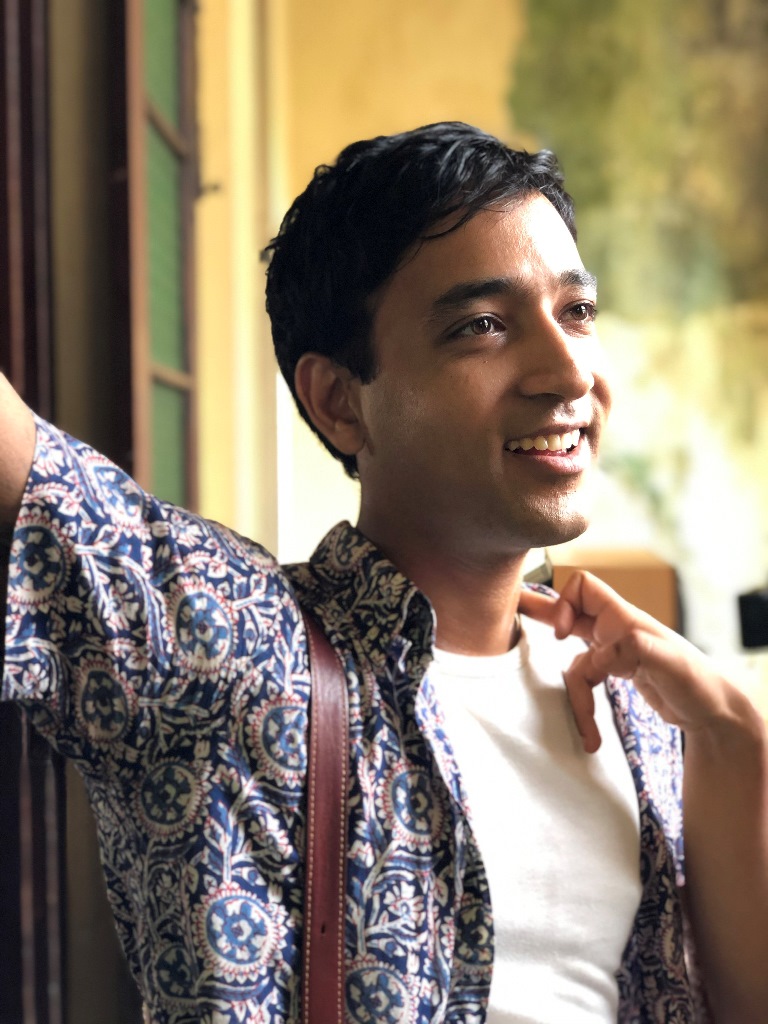
Honestly, what I’ve had since the numerous announcements of the various stages of this film has been words of support, encouragement, assurance and blessing. It is a celebration that I share with every Sri Lankan, both the ones I know and don’t know. At this point in my life I have earned the love of a constant few and I’ve built my private world around them – and I am very happy there.
I think it’s also important to use this opportunity to address the heart of your question. That culture you speak of, that level of interaction, that way of life was rampant in your generation. Less so in mine. Near dead amongst the young women and men growing into adults today. When this new generation rallies around you and supports you, they’re doing it because they actually care and are genuinely interested in your work or what you stand for and the things you believe in.
They have the kind of access to information that we did not, and they make their voices heard, and because of that they end up learning both from each other and from the mistakes of our past. They are better than us in a lot of ways. And that makes me have faith in the end of everything that is fake.
Thank you so much for what has been an interesting walk down memory lane, and an exploration of some important things that have led to this moment. If you haven’t watched Funny Boy yet, go do it now.
Listen to Brandon share his experiences on Aperitifs with Kumar on PulseLk
Aperitifs with Kumar CHAT 01 – it’s all about Arjie
Aperitifs with Kumar CHAT 02 – it’s all about Arjie


